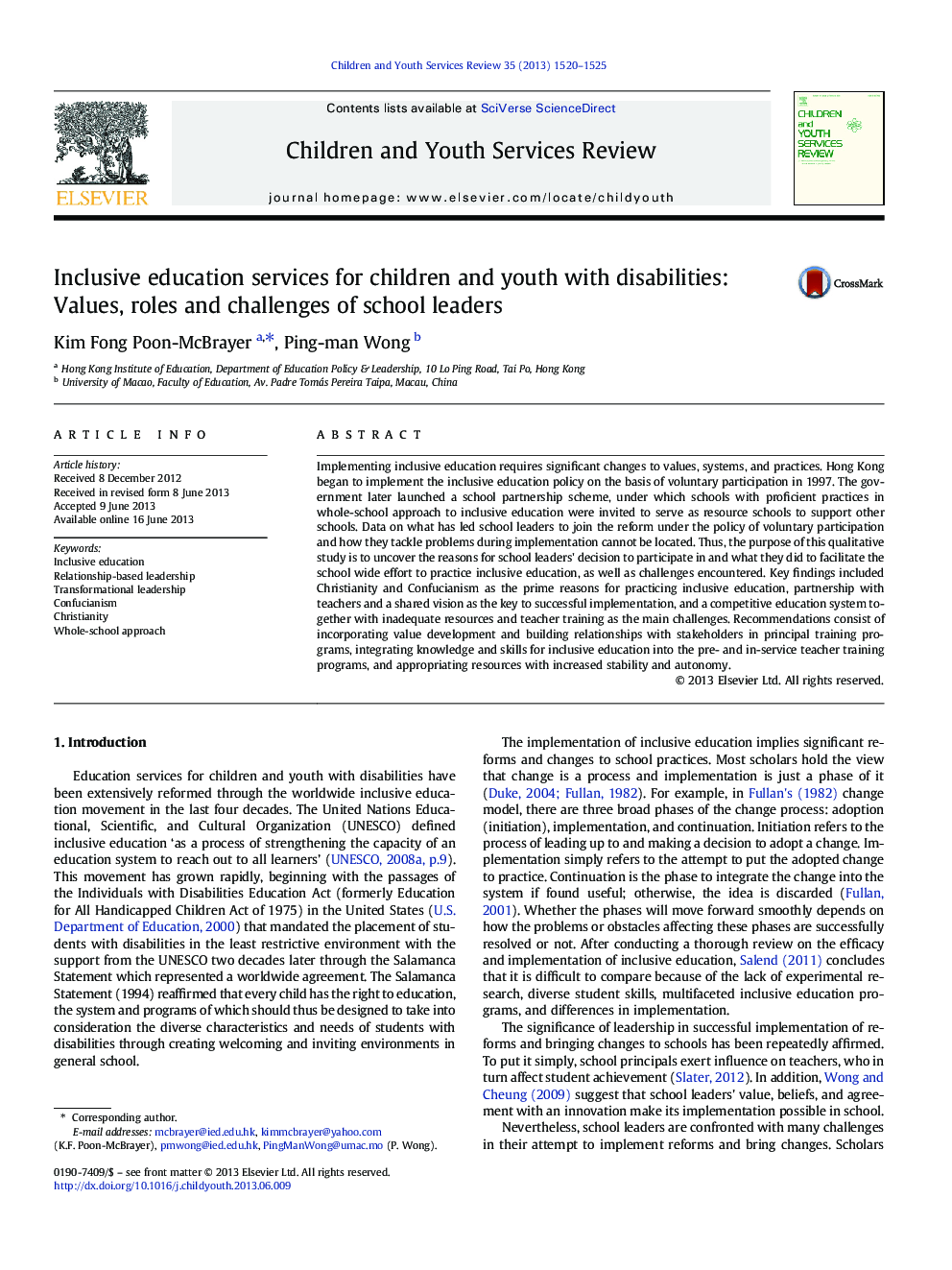| Article ID | Journal | Published Year | Pages | File Type |
|---|---|---|---|---|
| 10311617 | Children and Youth Services Review | 2013 | 6 Pages |
Abstract
Implementing inclusive education requires significant changes to values, systems, and practices. Hong Kong began to implement the inclusive education policy on the basis of voluntary participation in 1997. The government later launched a school partnership scheme, under which schools with proficient practices in whole-school approach to inclusive education were invited to serve as resource schools to support other schools. Data on what has led school leaders to join the reform under the policy of voluntary participation and how they tackle problems during implementation cannot be located. Thus, the purpose of this qualitative study is to uncover the reasons for school leaders' decision to participate in and what they did to facilitate the school wide effort to practice inclusive education, as well as challenges encountered. Key findings included Christianity and Confucianism as the prime reasons for practicing inclusive education, partnership with teachers and a shared vision as the key to successful implementation, and a competitive education system together with inadequate resources and teacher training as the main challenges. Recommendations consist of incorporating value development and building relationships with stakeholders in principal training programs, integrating knowledge and skills for inclusive education into the pre- and in-service teacher training programs, and appropriating resources with increased stability and autonomy.
Related Topics
Health Sciences
Medicine and Dentistry
Perinatology, Pediatrics and Child Health
Authors
Kim Fong Poon-McBrayer, Ping-man Wong,
